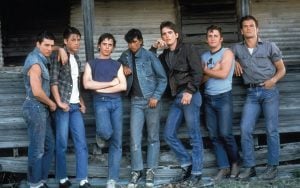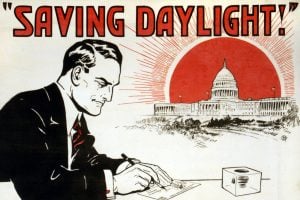Dustin Hoffman plays himself in ‘Jimmy Shine’ on Broadway (1968)
By Sherbourne Everett in The Baltimore Sun (Maryland) October 28, 1968
In “The Graduate,” the film that shot him from the obscurity of odd jobs and the relatively unheralded appearances in off-Broadway roles, Dustin Hoffman portrayed Benjamin Braddock, a 21-year-old college graduate who found himself alienated from the society in which he was reared.
In his second movie, “Midnight Cowboy,” scheduled for release in the spring of next year, Mr Hoffman plays a derelict.
And now, performing in his first stage play since his rise to prominence after “The Graduate,” the actor has the title role in “Jimmy Shine,” which deals with a 31-year-old painter, unsuccessful in selling his works. The play opens a three-week engagement tonight in the Morris A. Mechanic Theater.
“Yes, there are similarities in the two characters (Benjamin and Jimmy Shine),” Mr Hoffman stated. “They are both alienated from society. And both are drop-outs from school in a sense. Of course, Benjamin finished college — it was graduate school that he didn’t attend — but Jimmy Shine quit after high school.

Memories of life
“As far as differences are concerned, Jimmy Shine knows what he wants — to succeed in painting. Benjamin didn’t know what he wanted. And then one was wealthy and the other is poor.”
Jimmy Shine lives in a loft on the Lower East Side, Mr Hoffman explained, and the play is concerned with memories of his life. “Scenes include his jobs, his first sexual experience, a schoolroom and a girl he wanted but couldn’t get,” he continued.
Mr Hoffman, who was named for Dustin Farnum, a silent screen star, even finds some similarities between his life and the one he is portraying on stage.
He was in New York for a number of years, living in a Greenwich Village apartment he still rents, working as a Walter, a toy demonstrator for a department store and an attendant in a psychiatric institute, among other jobs, and Janding some parts in off-Broadway productions.
Two of these plays — “The journey of the Fifth Horse,” for which he received an “Obie” award, and “Eh?” — were responsible for his climb to recognition.
Had talent
“I wasn’t getting any acting work,” Mr Hoffman remembers, comparing himself to Jimmy Shine, “and I began to wonder how much longer it would be before I went into something else, I was doing odd jobs and had considered teaching acting and directing. But I felt I had talent, and figured if I hung around long enough, my chance would come, my number would come up.”
Noticing the resemblances between Dustin Hoffman as Dustin Hoffman, Dustin Hoffman as Jimmy Shine, and the characters Jimmy Shine and Benjamin Braddock, one might wonder if these roles attract this actor more than others might, or whether it is simply a trend in film-making and writing today to loom in on these ”alienated” people.
“I think it is a trend in films today.” Mr Hoffman commented, “but I am attracted to this kind of part. I have always felt on the fringe of things and have always wanted to feel in the middle.”

Low-key interpretation
The actor was quick to point out, however, that he is not really like the character in “The Graduate.” “I was using myself, but giving it a low-key interpretation. It was hard work, and I acted my tail off.”
He added: “Anyone who reads a script, identifies with and tries to understand the character. I like to play a character that I feel I know something about. You sort of get on the same wavelength as the writer and sense what he feels. This way you can actively play the part.”
After “The Graduate” opened and his Academy Award nomination was assured, Mr Hoffman was besieged with scripts before he chose the part in ”Midnight Cowboy.”
“I was getting some bad scripts — really cheap material,” he remarked. “Then after about six months and probably the fiftieth script I had read, I was given ‘Midnight Cowboy.’ It was rich material.”
Strange character
“I was told not to accept the part because it was a strange character, but I did, and I’m glad I did,” Mr Hoffman said, adding that he believes the movie will premiere in April.
Are there any chances for another Academy Award nomination? “If the film works and if I did well, yes, there are chances. We’ll just have to wait and see.”
“Midnight Cowboy,” Mr Hoffman feels, will help him get rid of the stigma that brought him offers of so many “commercial, television-situation-comedy” roles, as he terms them, after “The Graduate.” “And the very fact that I was turning down stuff like that has helped, too,” he stated.
Now that he has starred in two movies and is currently headlining in a pre-Broadway play — “Jimmy Shine” played in Philadelphia before moving to Baltimore and is scheduled to open in New York toward the end of November — Mr Hoffman has no preference in regard to the medium he likes best.
Gives incentive
“Both are hard and both have problems,”‘ he explained. “In movies, there isn’t any [live] audience, and there aren’t as many pressures. Yet, if you do something funny, there is no one to laugh, because it would ruin the film. You don’t know how it will be accepted.” On the other hand, he continued, a live audience with its laughter and applause gives the actor incentive.
“All in all, I will act in the medium that gives the best script,” he concluded.
When asked what he considered were the possibilities that “Jimmy Shine” would be a Broadway hit, Mr Hoffman replied, ‘It all depends on the (New York) Times review. The audience (in Philadelphia) seemed to build while we were there, and it builds by word of mouth.”
Does he think the audiences were attributed to the fact that he, Dustin Hoffman, was starring in the play? His reply — a definite “No.” However. he did comment, ‘A friend whom I respect thinks I am doing my best acting in ‘Jimmy Shine.’ He says I am ‘more open’ in the role.”
Another film
After all this, what is next for Dustin Hoffman? Oddly enough, it will be another film about another alienated man. According to the actor, he will do a movie with Arthur Penn, who directed “Bonnie and Clyde,” entitled “Little Big Man” probably next summer.
“It is a satirical, serious story of the Indian problem, taking place in Custer’s time. It concerns a white man who grew up with the Indians and is now alienated from them,” he explained.
And eventually, Mr Hoffman hopes to go into directing. “I feel that I must understand films better before I consider directing them, but I have directed some plays in North Dakota and New Jersey, and I feel they have been my best works. I have gotten the most enjoyment out of directing.”
‘Negative entrance’
Dusiin Hoffman has come a long way from the day he made ”a negative entrance” into acting. “I was getting estranged from music, my first love, and lacked the discipline needed to continue it further.
“Acting was one thing I could do without having to study hard, and it was the first thing I really liked. I guess you could say that acting was an escape, a cop-out at the time, for me.”
One thing, though, is positive: Dustin Hoffman is “up” and the only way to go is higher.
Dustin Hoffman plays himself in ‘Jimmy Shine’ on Broadway (1968)
by Clive Barnes in the Montana Standard (Butte, Montana) December 22, 1968
One day, Dustin Hoffman will undoubtedly get a play worthy of his enormous talents. It did not happen at the Brooks Atkinson Theater where Hoffman made his Broadway debut in Murray Schisgal’s “Jimmy Shine,” but the enormous talents were well to the fore.
Hoffman — and I think I had better concentrate first on him rather than Schisgal — has the strange ability to be himself on stage. Or at least if that is not himself he is playing, or at least some aspect of himself, he must be so unnaturally talented that he is practically monstrous.

For some months now, advertisements have been assuring us that “Dustin Hoffman is Jimmy Shine,” and for once the advertisements are so right. Hoffman takes the play, what little there is of it, and waltzes right away with it, nimbly, deftly and so convincingly that you are so fascinated with the performance, you scarcely have time to realize the slender play it is being lavished upon.
Jimmy Shine is an abstract painter. In fact, he appears to have taken painting to its irreducible abstraction of virtual nothingness. He is a failure. He is a failure as a student, as an artist, as a lover and as a hippie.
He is the kind of man who unwittingly reforms nymphomaniacs and is chased trouserless from his first attempt to lose his virginity by the lady’s husband. His paintings do not sell and his attempts to make a secondary career in the retail fish industry are understandably frustrated by his inability to see fish have their heads cut off.
And that is that. There are secondary characters. The old buddy-buddy school chum who persuades Jimmy to take up painting in the first place, and himself goes on to fortunes in real estate in the second.
There is the girl he loves but who affects him so viscerally that he can never tell her, and the other girl who loves him but believes in putting marriage in front of bed. Then there is the friendly little whore who comforts him — as far as possible — on his failure.
All in all, it is not so much a play as an amusingly drawn caricature with background shading. For even with Jimmy eccentricity seems to have the place of character, and oddly the place of blood.
Schisgal has cast his play as a Sunday morning in Jimmy’s Greenwich Village loft with suitable fantasy excursions into the past, presumably intended to show us how Jimmy got the way he is.

But as it soon becomes apparent that lovable little Jimmy always was the way he is, the dramatic effect soon becomes more one of a series of episodic sketches — some quite funny and all of them suitably exploiting Hoffman’s skills — than the developing structure of the play.
And this episodic feeling is emphasized by the introduction of a few songs and dances, all of them with music and lyrics composed in a bright, showbiz pastiche style by John Sebastian [of The Lovin’ Spoonful].
Pastiche is one of the keys to Hoffman’s own richly enjoyable performance. He is clearly most himself when he is pretending to be somebody else. He pretends he is Groucho Marx with a leering doubletake, impertinent cigar and that collapsed walk that suggests a vital muscle has given way but there is still no cause for alarm.
Or another time his voice will rasp like Durante’s, assertive and cocky, or else it will take on the mellow, whisky-honeyed tones of WC Fields. You feel that even if he ever did make out with a girl he would instantly start playing Bogart.
In all of this Hoffman slides in and out of his fantasies and characters as elusive as an eel, as bright as a hamster. He seems to look at the world with all the uncertain security of the gifted drop-out. There he is, most of the time gleamingly inarticulate and yet still possessed of that wayward intelligence.
He shambles Chaplinesque across the stage, or else tears into a dance routine with tin cans tied to his feet and Gene Kelly in his heart.
He dreams. But not really of fame and fortune, but merely of comfortable adequacy. Most of all he is self-reliant, for failure has brought its own rewards.
The interest of Hoffman’s particular performance is largely to be found in that it seems to be an image, even a projection of much of contemporary youth. He can take a not very well-written part in a very slight play and make some kind of symbol out of it. This is no small achievement — or perhaps it is. Perhaps Dustin Hoffman really is Jimmy Shine.



















